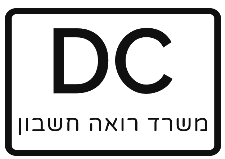Getting Started: A Beginner’s Guide to Tax Preparation for Small Businesses
Tax season can be a daunting time for small business owners, especially those who are new to the world of tax preparation. The process can be overwhelming, but with the right knowledge and tools, you can navigate through it smoothly. In this beginner’s guide, we will provide you with essential tips and steps to help you get started on your tax preparation journey for your small business.
First and foremost, it’s important to understand the concept of tax preparation and why it is crucial for your small business. Tax preparation involves the organization and submission of your financial information to the relevant tax authorities. This includes reporting your income, deductions, and any other relevant financial transactions.
One of the crucial steps in tax preparation for small businesses is record keeping. Maintaining accurate and thorough records of your business transactions is vital for smooth tax preparation. Ensure that you keep track of all income sources and expenses, including invoices, receipts, bank statements, and any other relevant financial documents. These records will serve as evidence and back up for your tax filings.
Next, it is essential to stay updated with the tax laws and regulations relevant to your business. Tax laws are subject to change, so make sure you are aware of any modifications that may affect your tax obligations. Consider seeking professional advice from a tax advisor or an accountant, known as “רואה חשבון” in Hebrew, to ensure compliance and optimize your tax return.
As a small business owner, you may be eligible for various tax deductions and credits that can significantly reduce your taxable income. Familiarize yourself with available deductions and credits specific to your industry and business activities. Some common deductions include expenses related to operating your business, such as rent, utilities, advertising, and employee wages. By taking advantage of these deductions, you can minimize your tax liability and maximize your profitability.
When it comes to tax preparation, it is essential to stay organized and plan ahead. Set aside time regularly to review your financial records, ensuring they are up to date and accurate. Consider using accounting software or online platforms to streamline the process. These tools can help you track income and expenses, generate financial reports, and simplify tax filing.
Lastly, be mindful of tax deadlines. Missing tax deadlines can result in penalties and unnecessary stress. Mark the relevant dates in your calendar and make it a priority to submit your tax filings on time. If you are unable to meet the deadline, consider filing for an extension to avoid penalties.
In conclusion, tax preparation for small businesses may initially seem overwhelming, but by following these essential tips, you can simplify the process and ensure compliance. Remember to keep accurate records, stay updated with tax laws, take advantage of deductions, stay organized, and meet tax deadlines. If you’re unsure or find the process challenging, seeking professional advice from a tax advisor, or “רואה חשבון,” can provide valuable assistance. With time and experience, you will become proficient in tax preparation, allowing you to focus on growing your small business.
Publisher Details:
רואה חשבון בהוד השרון והרצליה, דהן את כוכבי
https://www.dc-cpa.tax/
Unlock financial success with DC-CPA.tax – your trusted partner for all your accounting and tax needs. Discover expert guidance, personalized strategies, and seamless solutions tailored to maximize your wealth and secure your financial future. Don’t just dream of wealth, let DC-CPA.tax help you achieve it.
